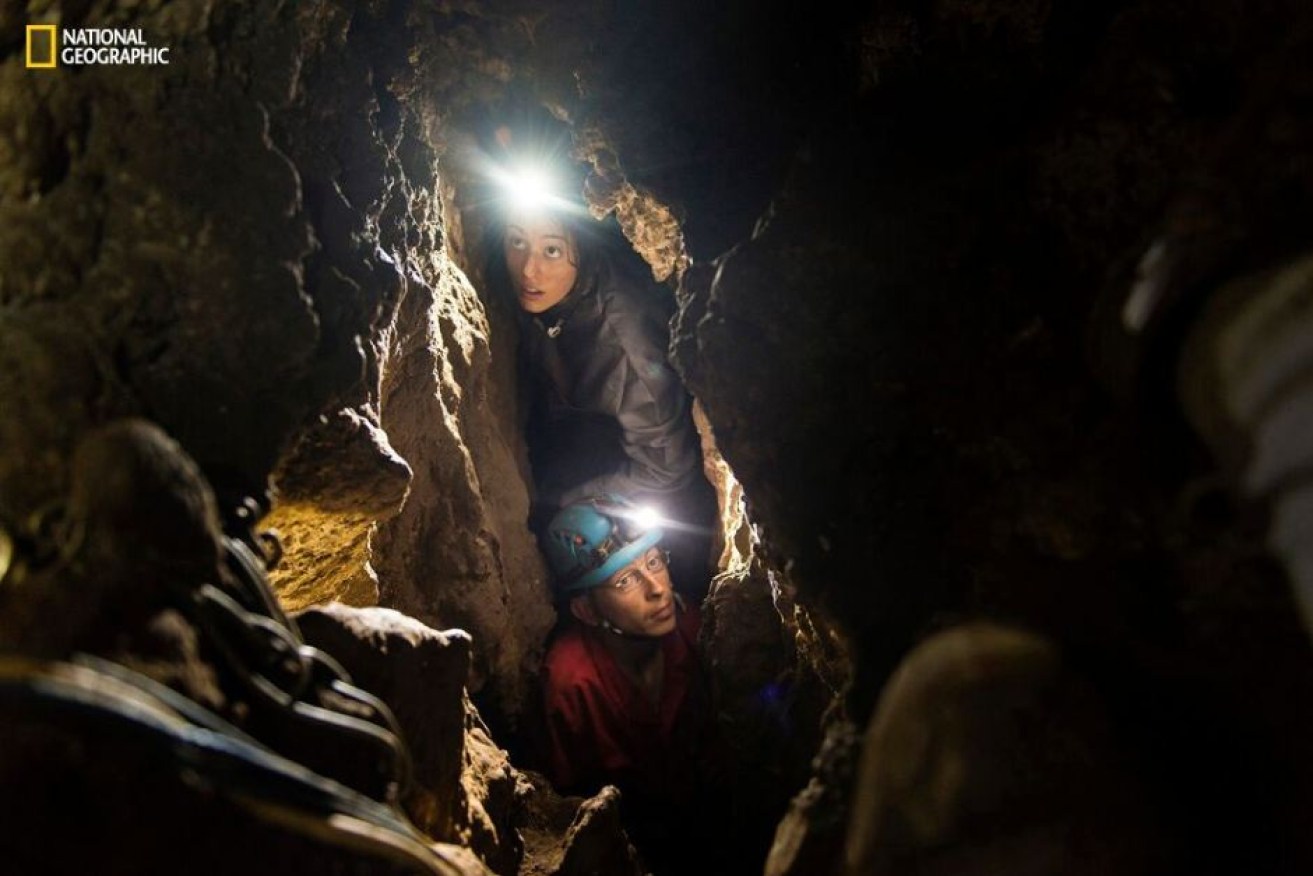Racism row sparked over new human species

National Geographic
Some prominent South Africans have dismissed the discovery of new human ancestor Homo naledi as a racist theory designed to cast Africans as “subhuman”.
“No one will dig old monkey bones to back up a theory that I was once a baboon. Sorry,” said Zwelinzima Vavi, former general-secretary of the powerful trade union group Cosatu, which is a faithful ally of the ruling African National Congress (ANC).
Mr Vavi’s comments came after last week’s discovery of Homo naledi, described by scientists as a new distant ancestor of humans.
• New species of human relative uncovered
• Ancient DNA link connects Australians, South Americans
“I am no grandchild of any ape, monkey or baboon – finish en klaar [Afrikaans for ‘that’s it’],” Mr Vavi said on his Twitter account, which is followed by more than 300,000 people.
His comments were backed by the South African Council of Churches (SACC), which was historically involved in the fight against apartheid.
Mr Vavi recalled being a target of racist remarks when South Africa was under apartheid rule: “I been also called a baboon all my life so did my father and his fathers.”
Apartheid ended in 1994 after Nelson Mandela was elected as the country’s first black president in a democratic South Africa.
The discovery of the ancient relative generated a huge amount of international interest.
We’re all African apes: Dawkins
But the South African backlash has perplexed people around the world at a time when Darwin’s theory of evolution is widely accepted as fact.
It “breathes new life into paranoia,” prominent British biologist Richard Dawkins said on Twitter this week.

The remains were found at the end of a narrow passage in a section where sunlight has never reached, known to scientists as the “dark zone”. Photo: National Geographic
“Whole point is we’re all African apes.”
Lee Berger, an American working at Johannesburg’s University of the Witwatersrand and overseeing the Homo naledi dig, tried to keep his distance from the charged debate, though he did specifically clarify that man did not descend from baboons.
“For our scientists, the search for human origins is one that celebrates all of humankind’s common origins on the continent of Africa,” he said.
“The science is not asking questions of religion nor challenging anyone’s belief systems, it is simply exploring the fossil evidence for the origins of our species.”
The body of Homo naledi resembles that of a modern man, but researchers say its orange-sized brain places it closer to Australopithecus, a group of extinct hominids that walked on two legs and lived around two million years ago.
Some 1550 fossils were unearthed in the Rising Star, a cave located in the Cradle of Humankind, a site 50 kilometres north-west of Johannesburg that has proven over the years to be a rich source for palaeontologists.
The bones have not been dated, but researchers claim they will reveal more about the transition between the primitive Australopithecus and the Homo genus, the family tree of our direct ancestor.
‘Africans not respected’
The discovery of the new ancestor supports the West’s “story that we are subhumans”, ANC member of parliament and former chief whip Mathole Motshekga said.
“That is why today no African is respected anywhere in the world because of this type of theory,” he said in an interview with television network ENCA.
The finding “seems to be calculated to affirm what apartheid and colonialists did to say that we are subhumans who develop from the animal kingdom and therefore gave us the status of subhuman beings to justify slavery, colonialism, oppression and exploitation,” he said.

The skeletons of 15 human ancestors were retrieved from the deep underground chamber. Photo: ABC/National Geographic
The SACC added fuel to the controversy.
“To my brother Vavi, I would say that he is spot on,” SACC president Bishop Ziphozihle Siwa said in response to the former Cosatu leader’s comments.
“It’s an insult to say that we come from baboons. We must continue to engage.”
Bishop Siwa said scientists should continue to provide evidence but also “listen to what God is saying to us and not make a jump to quick, foolish conclusions”.
The official government reaction to the Homo naledi find was, however, positive, with deputy president Cyril Ramaphosa saying “our common umbilical cord is buried” in Africa.
Homo naledi underlines that “we are bound by a common ancestor”, he declared.








